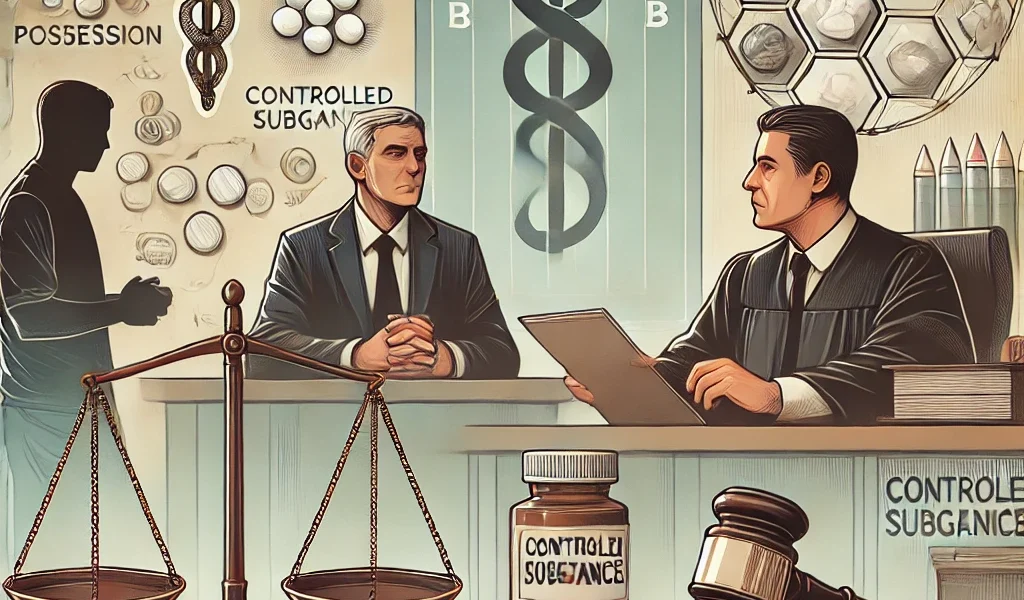Drug possession is a serious criminal offense in most jurisdictions, and penalties can vary based on factors like the type and quantity of drugs, intent, and prior criminal history. However, various legal defenses can help individuals fight or mitigate these charges. This guide provides a detailed overview of drug possession laws, penalties, and potential legal defenses.
Understanding Drug Possession Laws
Drug possession refers to an individual knowingly having illegal substances for personal use, sale, or distribution. The laws are enforced at both state and federal levels, and the severity of the charge depends on the following:
- Type of Drug – Categorized into different schedules based on addiction potential and medical use.
- Quantity of Drug – Small amounts may lead to misdemeanor charges, while larger amounts can result in felonies.
- Intent – Possession for personal use has lower penalties than possession with intent to distribute.
- Criminal History – Prior convictions can lead to harsher sentences.
Types of Drug Possession Charges
- Simple Possession – Having a small amount of an illegal substance for personal use.
- Possession with Intent to Distribute – Possessing a large quantity of drugs or evidence suggesting distribution (e.g., baggies, scales, large cash amounts).
- Constructive Possession – Drugs found in an area under a person’s control (e.g., car, home, locker).
- Possession of Drug Paraphernalia – Owning items associated with drug use, such as pipes or syringes.
Penalties for Drug Possession
The severity of penalties depends on jurisdiction and circumstances but generally includes:
1. Misdemeanor Drug Possession
- Fines: Up to $1,000
- Jail Time: Up to 1 year
- Probation: Drug counseling or rehab may be required
- Community Service: Mandated hours of work
2. Felony Drug Possession (For larger amounts or repeat offenses)
- Fines: Up to $10,000 or more
- Prison Time: From 1 to 10+ years
- Criminal Record: May affect job opportunities, housing, and civil rights
3. Enhanced Penalties (Aggravating Factors)
- Possession near schools, playgrounds, or public spaces can lead to increased sentencing.
- Possession while carrying a firearm results in additional criminal charges.
- Repeat offenders face harsher penalties under three-strike laws.
Possible Legal Defenses Against Drug Possession Charges
If charged with drug possession, several legal defenses may be used depending on the circumstances:
1. Lack of Knowledge
- If the accused was unaware that they had drugs (e.g., someone placed them in a bag or car without their knowledge), this can be a defense.
2. Illegal Search and Seizure
- Fourth Amendment violations occur when law enforcement conducts an unlawful search without a warrant or probable cause.
- If the search was unconstitutional, the evidence may be suppressed.
3. Drugs Belonged to Someone Else
- If the drugs were not in the accused’s direct possession, they can argue that they belonged to another person.
4. Entrapment
- If law enforcement coerced or trapped the accused into committing a drug crime they otherwise wouldn’t have committed, it may be a valid defense.
5. Lab Analysis Challenge
- The prosecution must prove the substance is illegal through lab testing. If the analysis is incorrect or incomplete, the charges may be dismissed.
6. Prescription Medication Defense
- If the drug in possession was a legally prescribed medication, proving it was lawfully obtained may dismiss the case.
Steps to Take If Arrested for Drug Possession
If you are arrested for drug possession, taking the right steps can significantly impact your case:
- Remain Silent – Do not discuss the case with police without a lawyer.
- Request a Lawyer – A criminal defense attorney can protect your rights.
- Do Not Consent to a Search – If law enforcement searches without a warrant, it can be challenged in court.
- Understand the Charges – Know the specific drug possession charges you are facing.
- Gather Evidence – Keep any documents, prescriptions, or evidence that could support your defense.
- Follow Court Orders – Attend all hearings and comply with legal requirements.
Rehabilitation and Alternative Sentencing Options
Many courts offer alternative sentencing for non-violent drug offenders, focusing on rehabilitation rather than punishment. These include:
1. Drug Diversion Programs
- First-time offenders may qualify for drug rehabilitation programs instead of jail time.
- Completing the program may dismiss charges.
2. Probation Instead of Jail
- Offenders may receive supervised probation with drug testing.
- Failure to comply can lead to reinstated jail time.
3. Expungement of Record
- Some jurisdictions allow for expunging drug-related offenses after successful rehabilitation.
Conclusion
Drug possession charges can have serious legal consequences, but understanding your rights, possible defenses, and alternative sentencing options can help protect your future. If you face drug possession charges, consult with an experienced criminal defense attorney to explore the best legal strategies available.




